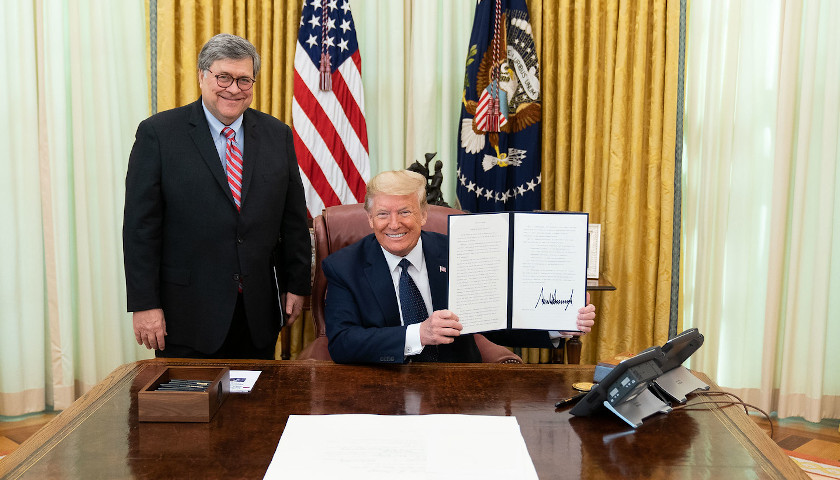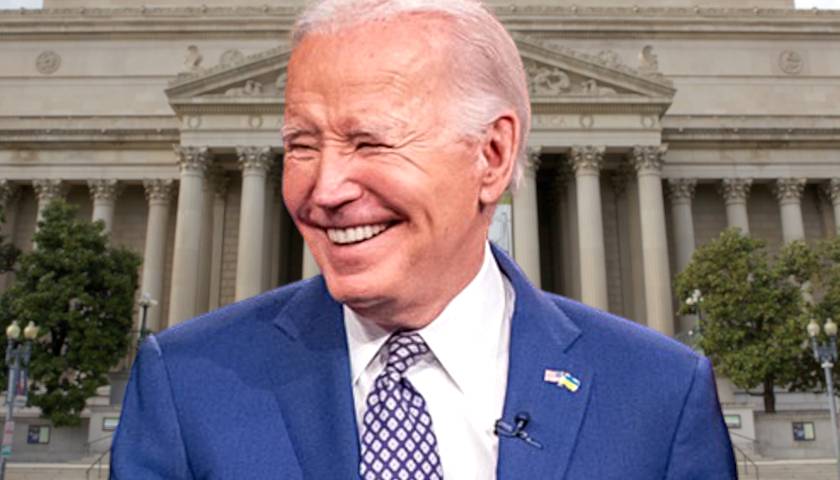by George Rasley
President Trump’s long-hoped-for Executive Order on social media censorship is a good first step in dismantling the Left’s dangerous influence over these 21st-century communications vehicles. (You can read the draft that was available online when this article was posted through this link to The National Pulse, edited by Raheem Kassam.)
We particularly agree with this part of the EO’s statement of principles, “In a country that has long cherished the freedom of expression, we cannot allow a limited number of online platforms to hand-pick the speech that Americans may access and convey online. This practice is fundamentally un-American and anti-democratic. When large, powerful social media companies censor opinions with which they disagree, they exercise a dangerous power.”
And the White House was right to call out the social media giants’ anti-American cooperation with adversary states, especially Communist China:
At the same time social media platforms are invoking inconsistent, irrational, and groundless justifications to censor or otherwise punish Americans’ speech here at home, several online platforms are profiting from and promoting the aggression and disinformation spread by foreign governments like China. Google, for example, created a search engine for the Chinese Communist Party, which blacklisted searches for “human rights,” hid data unfavorable to the Chinese Communist Party, and tracked users determined appropriate for surveillance. Google has also established research partnerships in China that provide direct benefits to the Chinese military. For their part, Facebook and Twitter have accepted advertisements paid for by the Chinese Government that spread false information about China’s mass imprisonment of religious minorities. Twitter has also amplified China’s propaganda abroad, including by allowing Chinese government officials to use its platform to undermine pro-democracy protests in Hong Kong.
We could also add to the President’s list Twitter allowing the enemy state of Iran and its officials to use Twitter as a vehicle to spread anti-Semitic and anti-American propaganda, but why gild the lily.
While these statements of principles and irrefutable evidence of cooperation with our enemies have some utility in setting up the case for further action, it is the action itself that is important. In that regard we think the President has finally come to grips with an issue that has been a constant source of confusion for many conservatives: Section 230(c) of the Communications Decency Act (47 U.S.C. 230).
Section 230 is the section of the law that created the concept of “platform immunity” from liability for the social media companies. The Executive Order notes that an interactive computer service provider, such as Twitter, may engage in “Good Samaritan” blocking of content deemed obscene, lewd, lascivious, filthy, excessively violent, harassing, or otherwise objectionable and still retain its “platform immunity” from civil liability. But that protection is qualified, and an interactive computer service provider may lose that protection if it fails to act in good faith.
Our view has long been that the interactive computer service providers, Twitter and Facebook in particular, long ago waived their platform immunity by engaging in editorial actions far outside the parameters established in Section 230. However, many conservative commentators seem to regularly overlook the necessity of good faith and the fairly narrow list of content that qualified for “Good Samaritan” editing by the providers to come forth with the “it’s a private company we cannot and should not try to do anything about it.”
President Trump’s Executive Order puts the Trump administration squarely behind our interpretation of Section 230 platform immunity stating clearly that:
When an interactive computer service provider removes or restricts access to content and its actions do not meet the criteria of subparagraph (c) (2) (A), it is engaged in editorial conduct. By making itself an editor of content outside the protections of subparagraph (c) (2) (A), such a provider forfeits any protections from being deemed a “publisher or speaker” under subsection 230 (c) (1), which properly applies only to a provider that merely provides a platform for content supplied by others.
Now here’s the crucial part: “It is the policy of the United States that all departments and agencies should apply section 230 (c) according to the interpretation set out in this section.” Meaning all agencies of the Unites States government, such as the Department of Justice, The Department of Commerce, the Civil Rights Commission, the Federal Trade Commission, etc. are now called upon to act against the social media giants if their conduct appears to cross from platform to publisher or speaker and such conduct violates a law, rule or regulation enforceable by that department or agency.
It remains to be seen if the threat to their privileged business position causes the social media giants to amend their ways, we seriously doubt it will, and we look forward to the Trump administration acting with alacrity if they don’t.




